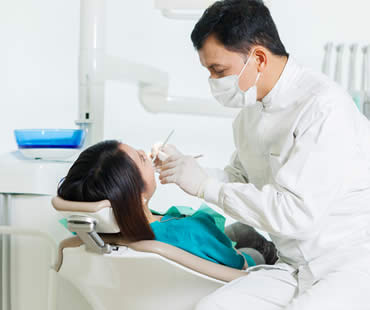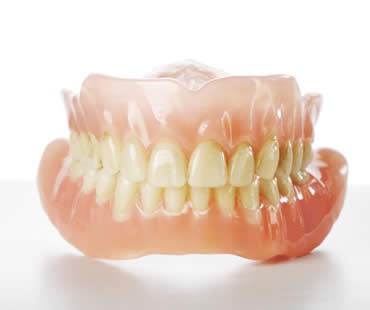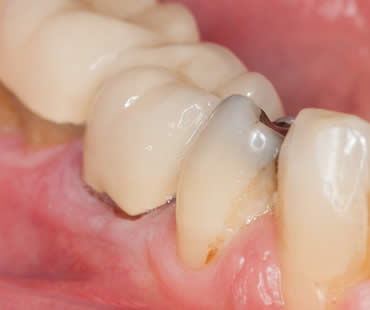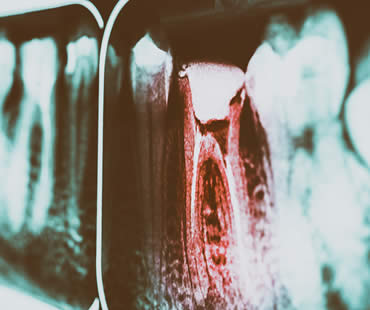
More and more people today are heading to their dentist’s office to brighten their smiles through teeth whitening treatments. Although you can try to maintain white teeth by limiting foods and drinks that stain or stopping habits like smoking, the truth is that teeth are prone to discoloring over time. If you’re considering undergoing teeth whitening, get the facts before you go.
Is teeth whitening safe?:
Most people are able to have their teeth whitened successfully without any issues. However, not everyone has good enough oral health to safely undergo treatment. Healthy teeth and gums are necessary so that the procedure is comfortable and effective. Patients with extensive fillings or crowns may not be the best candidates. Teeth that have extremely dark stains or discolorations from certain things like medications may not attain desired results.
How do I know if I’m a good candidate?:
A complete oral examination by your licensed dentist is the best way to determine if teeth whitening is right for you. During the assessment, your dentist will look for decay, receding gum lines, fillings, enamel condition, tooth sensitivity and more to decide if treatment is advised. Sometimes dental work can be done to restore oral health and then whitening becomes an option.
What is the process?:
Most professional teeth whitening treatments performed in a dental office are done with a high concentration peroxide bleaching agent and enhanced with special lighting to activate the gel. The dentist usually coats your gums with a product to limit sensitivity, and then the bleaching gel is carefully placed onto your teeth. Light is directed to the area, typically in three 15-minutes sessions. The dentist monitors the entire process for your safety and comfort.
What results can I expect?:
It is important to discuss your specific case with your dentist prior to treatment so that you have realistic whitening goals in mind. The degree of whitening often depends on the level and cause of your tooth discoloration. Some patients achieve a couple of shades brighter, while others whiten up to ten shades.
If you need a dentist in Meriden contact us today

A toothache can make everything seem terrible. Your mouth hurts, your head aches, you can’t eat what you want, you can’t sleep comfortably – in general, you feel awful! Your tooth pain may be a result of decay that has caused an infection in your tooth pulp, calling for root canal therapy.
What does that mean exactly? When the inside of your tooth or the pulp becomes infected, it causes the tooth to deteriorate and cause pain and sensitivity. Action is needed to eliminate the infection and protect the tooth from worse damage. Root canal treatment is the best solution because the damaged pulp is removed and the inside of the tooth is thoroughly cleaned and restored.
To accomplish a root canal procedure, your dentist will drill a small hole in your tooth to access the pulp and expertly remove it. Once the area is cleaned and disinfected, your tooth will be filled with a special material and sealed for protection. Finally, a dental crown is usually placed on top to complete the root canal procedure. You are left with a fully repaired and protected tooth.
What benefits does root canal treatment provide?
- Pain is eliminated with the repair of your tooth and removal of infection.
- Your ability to chew and bite foods will return to normal.
- You will no longer experience tooth sensitivity to hot or cold items.
- The damaged tooth will be restored so that it looks natural in your smile.
- Your other teeth won’t have excessive wear to make up for the damaged tooth.
With the advances in dentistry making root canal therapy faster and less painful, your procedure may be completed in as little as one trip to the dentist. Once the process is complete, you can expect your fully restored tooth to last as long as the rest of your teeth.
We look forward to seeing you in our Meriden dental office

Once you’ve received dentures to restore missing teeth, it will take some time to get accustomed to them. There’s no reason to be alarmed or frightened about wearing dentures, because most patients go through the same adjustment period. If you’re aware of the potential issues and how to react to them, the process will be easier for you. Here are some rules to follow as you begin wearing dentures.
Don’t try to fix them yourself.
Even though dentures are customized just for you, that doesn’t mean they always fit perfectly right away. There might be some molding defects or other minor flaws that cause the dentures not to fit exactly right or rub sores on your gums. If this happens, don’t try to correct the problem yourself. Take your dentures back to your dentist to explain what’s bothering you, and give your dentist a chance to properly and safely adjust them without damaging the dentures.
Watch your diet.
Similar to getting braces at first, you’ll want to stick to eating soft foods for the first few days of denture wear. Avoid foods that are sticky or hard to chew. Focus on chewing with your back teeth instead of the front part of your dentures, and cut your food into small bites.
Soak your dentures.
Soaking your dentures in a solution recommended by your dentist can help keep them hydrated. This will avoid dryness, which causes friction between your dentures and gums and can lead to mouth sores.
You’re going to unintentionally bite yourself.
It’s part of wearing dentures at first; you’ll probably bite the insides of your cheeks. It’s a natural part of adjusting to the appliance in your mouth, and it will subside as you get used to wearing them. Gargling with a fluoride rinse or other mouthwash provided by your dentist may provide relief.
Schedule your appointment at our Meriden dental office

Receding gums not only look unattractive, they can harm your health. If you notice that your gums are receding, ask your dentist for help so that you can reverse the problem instead of allowing it to worsen. The goal is to catch gum recession early and get it under control before it turns into periodontal disease.
What exactly is gum recession? It’s the condition in which the outer tissue on a tooth begins to wear away toward the root, leading to exposure of your tooth enamel and eventually your tooth’s root. If untreated, receding gums lead to periodontal disease. The best way to avoid this problem is to prevent it from starting in the first place. This is easily done by performing good oral hygiene techniques. Brush twice a day with a soft toothbrush using a circular motion and mild pressure. Also, floss your teeth every day.
If you see that your gums are starting to recede, it’s likely that practicing better dental hygiene will restore your gum health over time. A deep cleaning by your dentist will help kick-start your hygiene routine at home. In some cases, an even deeper cleaning called root planing may be necessary.
For more advanced cases of gum recession, your dentist may need to take tissue from other areas and use it to cover exposed roots. This can boost your gum tissue and make it healthy again. If you experience pain and increased sensitivity due to exposed roots, your dentist may prescribe medications to help.
The main thing to remember about receding gums is that quick action is important. Good dental care is key in both preventing it and in correcting the problem after it has begun. If you notice that your gums are pulling away from your teeth or experience sensitivity, start the healing process as soon as possible by asking your dentist for treatment advice.
We look forward to seeing you in our Meriden dental office

Cosmetic problems with your teeth can make it embarrassing to show your smile. Thanks to dental veneers, you can erase flaws and create a brand new look that will make you want to show off your pearly whites instead of hiding them.
Veneers are very thin shells that are usually made of porcelain. They are custom-made to fit right on top of the fronts of your teeth. The veneers are securely bonded in place so that you can feel confident and comfortable with your smile. The porcelain is matched to the same color as your natural teeth, or a few shades brighter if you’d like to whiten your smile. This material reflects light in the same way that real teeth do, so that others can’t even tell the veneers are there. Porcelain is also very durable, and will not stain like real teeth.
Dental veneers hide many different kinds of problems with your teeth. Some of the most common reasons that people choose to recreate their smiles with veneers include:
- Teeth damaged from injury or decay, including chips and cracks
- Unsightly gaps between teeth
- Stains or discoloration that isn’t corrected with teeth whitening
- Misshapen teeth that do not match the rest of your smile
Veneers are a quick and painless solution. Your natural teeth will be slightly prepared so that the veneers attach properly, but the process is not uncomfortable. Once your veneers are placed, you can expect them to last years without needing to replace them. Maintenance involves routine brushing and flossing just as you would normally, and keeping regular checkups with your dentist.
If you need a dentist in Meriden contact us today

The desire for a beautiful, healthy, natural smile is universal. Dental procedures such as root canal treatments aren’t something people aspire to have, and there are things you can do personally that can reduce your risk of having a root canal procedure.
Prevention is the best step you can take to avoid root canal therapy, and it all begins with you at home. If you didn’t grow up with good oral hygiene habits, now is the time to develop them. This simple step can lead directly to good oral health. Be sure you are brushing your teeth at least twice a day, following each meal if possible, and absolutely before sleeping. If you don’t brush your teeth before bedtime, you’re providing a robust breeding ground for bacteria to grow and degrade your teeth while you’re sleeping. Floss daily to reach the places between teeth and beneath the gum line that brushing can’t reach.
Fluoride in your toothpaste and in mouthwash can keep your tooth enamel strong and durable. Never give fluoridated toothpastes to children under the age of two years and avoid fluoridated mouthwash until the child is more than six years old.
Maintaining a proper diet ensures that your body is receiving all of the nutrients it needs for health, both orally and elsewhere in the body. Chewing crunchy foods like raw vegetables and hard fruits can help keep your teeth bright and clean, scraping away debris while you chew.
If you are a smoker, you should stop immediately. Not only is it a huge factor in your oral health, but also for your overall health. Smoking contributes directly to lung disease, cancer and heart disease, as well as other health issues. Your dentist or doctor can give you excellent advice about quitting.
Stay hydrated by drinking lots of water and avoiding sugared drinks. Rinse your mouth after consuming soda, coffee, tea or a sports drink.
Be sure to see your dentist twice a year for regular check-ups and cleanings, and keep your risk of a root canal treatment low.
If you need a dentist in Meriden contact us today














